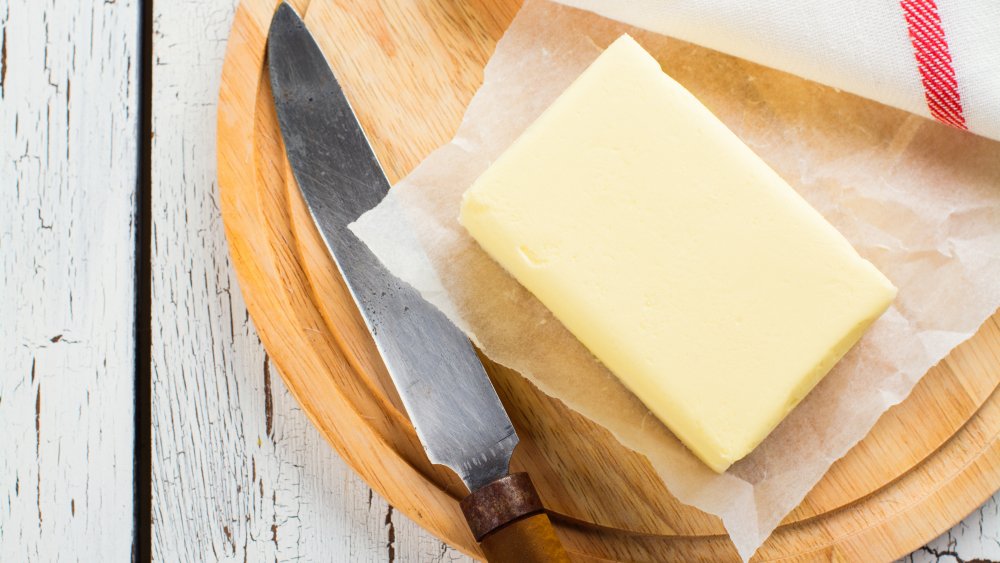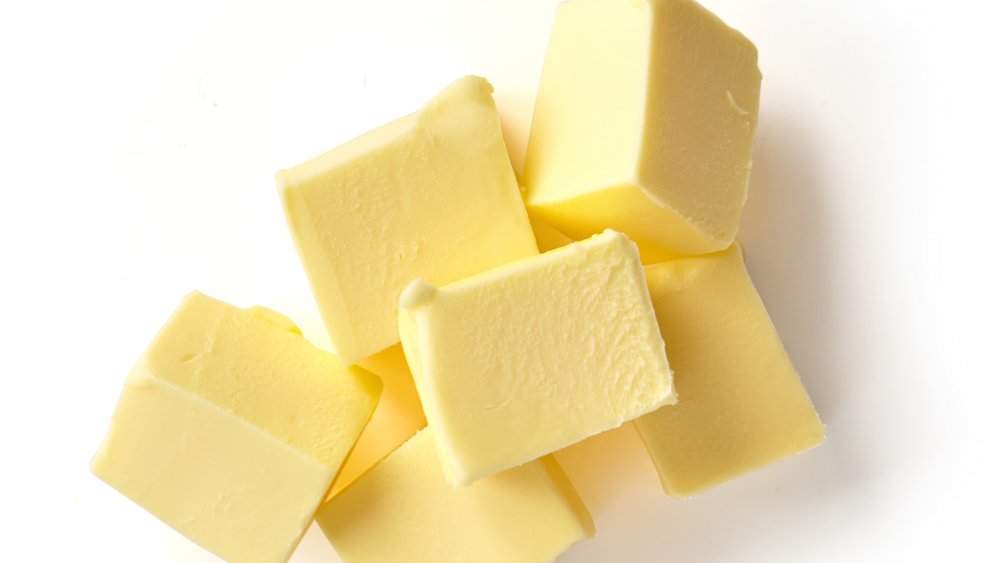Salted Butter Vs. Unsalted Butter: Which Should You Use?
When cooking with butter, the first question you face is whether to use salted or unsalted butter. The difference between the two is in the name: salt. Unsalted butter is only cream, while salted butter contains some added salt. The amount of added salt can vary by brand so check the labels to get the level of salt you're looking for (via Taste of Home).
Unsalted butter has a mellower sweetness compared to salted butter (via Cooking Light). It's best for baking and in any recipes where you want to keep ingredients exact. It may be listed as either unsalted or sweet butter in the grocery store.
Some recipes will specify what type of butter should be used. When a recipe doesn't however, generally assume that the recipe calls for unsalted butter, particularly if the recipe also calls for salt. Otherwise, you can end up with overly-salty results. In general, due to the lack of control of added salt, most of the time unsalted butter is the go-to choice in baking.
If you find yourself in the situation of only having salted butter for a recipe that calls for unsalted butter, such as soups, stews, sauces, or roasted vegetables, you can still use the salted butter. Just compensate for the added salt by tasting the food as you go, and limit what you add.
When you should use salted butter
If you are baking, you can still use the salted butter, but you should reduce the amount of salt called for (via Southern Living).
However, there are times when salted butter is the better choice. Salt can help bring out the flavor in a food. If you are buying butter to use with fresh bread, for example, salted butter may be your best bet to highlight the flavors of the bread.
When it comes to which butter is a healthier choice, keep in mind the only difference is the added salt. There are approximately 90 milligrams of additional sodium in the salted butter. The FDA recommends 2,300 milligrams of sodium per day, the equivalent to one teaspoon of salt. A tablespoon of salted butter is approximately 100 milligrams of sodium. For any health conditions that are sensitive to salt, this can be an important distinction. Unsalted butter gives you complete control over the amount of salt in your recipe (via Popsugar).
If you prefer salted butter, an advantage to buying it is that it lasts longer in the refrigerator because the salt acts as a preservative. However, if you only want to buy one type of butter, buy unsalted and when using it on fresh baked goods, simply add a sprinkle of a fancier salt on top, such as a nice sea salt.

